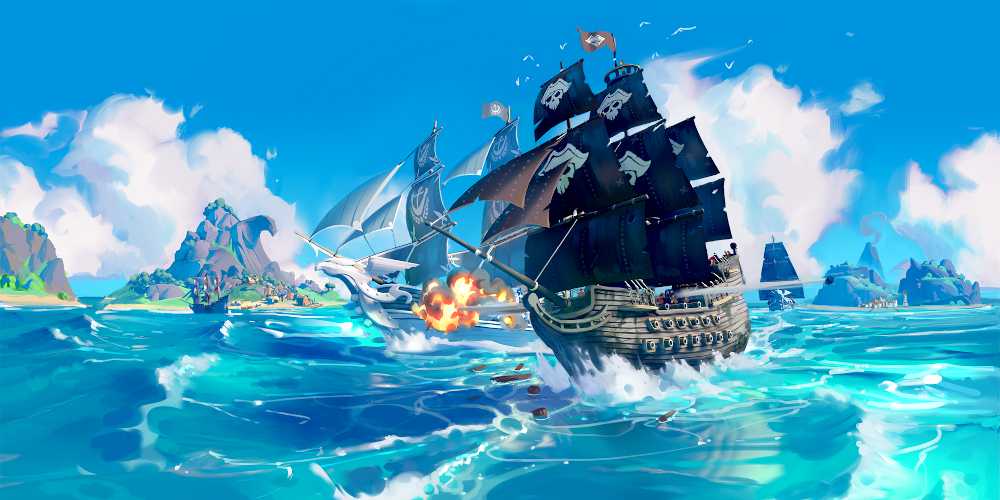I'm one of those people who love the idea of sailing the open seas and diving into a free-form adventure with ship-to-ship combat, port cities to explore, goods to transport, and treasures to discover. But I've yet to find a game that really fits my style.
So when I was offered the chance to review King of Seas, I jumped at the opportunity. On paper, it sounds like everything I want:
King of Seas is an action role-playing game set in a deadly procedurally generated pirate world. In a ferocious plot you will fight to regain what has been taken away and embark on an epic adventure in a fantastic world, filled with battles, lost islands and treasures. A universe full of amazing characters and breathtaking missions will keep you anchored as you strive to become the king of all pirates.
Official King of Seas game description
Does it live up to expectations? Is this finally the open-seas RPG adventure I've been hoping for? Or is it more proof that maybe this genre just isn't for me? Here's what I found.
My review unit was provided for free, but my opinions are my own and haven't been influenced in any way.
The Premise
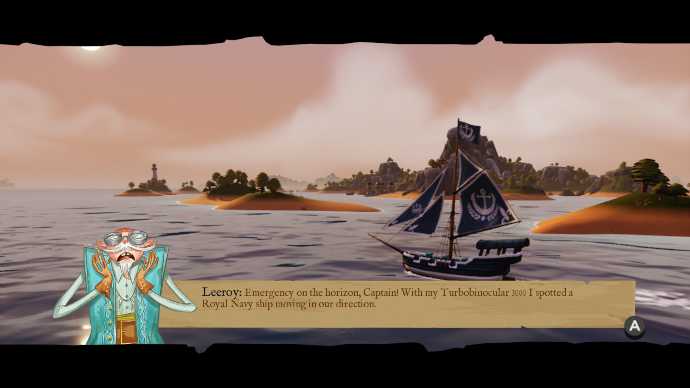
King of Seas is an open-world indie RPG adventure that puts you in the role of a young sea captain who sails away from home on your first mission, only to return and find that there's a bounty on your head. You've been framed for the murder of the king!
To survive, your only option is to become a pirate—and thanks to the generosity and guidance of Captain D. Morgen and Leeroy, who take you in while the Royal Navy is out to get you, you can do what's necessary to grow and learn the truth behind everything.
Despite there being a narrative that pulls you along from plot point to plot point as you learn the fundamentals of piracy on the high seas, King of Seas provides a procedurally generated world that you can explore at your own pace—and at your own peril.
The Good
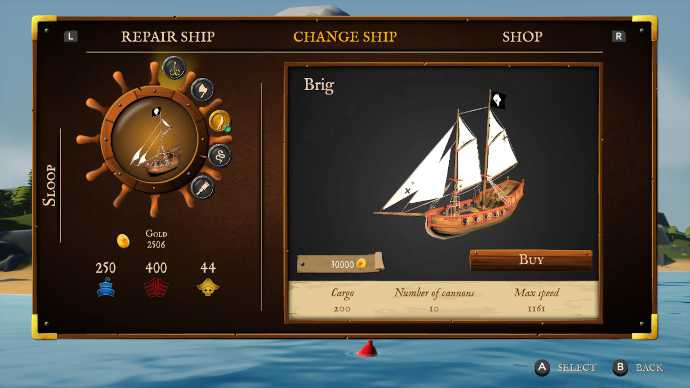
As you sail the high seas in King of Seas, you'll need to sink a few ships from time to time—and the ship-to-ship combat is pretty fun.
Movement is throttle-based, meaning you set a forward speed and turn accordingly, rather than moving in whichever direction you want to go. (But instead of throttling a steam engine, you raise or lower sails.)
You can fire cannons from both port and starboard sides, and there are three cannon types, which are each effective against different aspects of a ship: the sails (forward speed), the crew (turning speed), and the hull (which sinks if it reaches zero).
All of this means that positioning and maneuvering are of utmost importance for survival, and proper cannon usage is critical for taking down ships before they take you down.
You can improve your ship's capabilities by upgrading its various aspects via better equipment, and you can progress along a skill tree that has 20 different improvements to boost your potential.
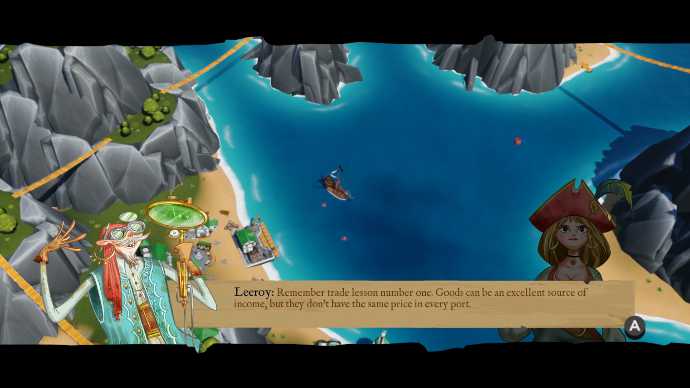
The procedurally generated world provides a new layout to explore every time you play, with randomized dangers and port cities.
One of my favorite parts of King of Seas—and the bit I was most anticipating beyond the ship-to-ship combat—is that each port city has its own prices for goods, leading to economic imbalances across the high seas and allowing you to pursue arbitrage for profit.
The seas also have localized weather effects and atmospheres in certain areas, simulating the actual high seas where some areas have heavy storms while others are as peaceful as a dove.
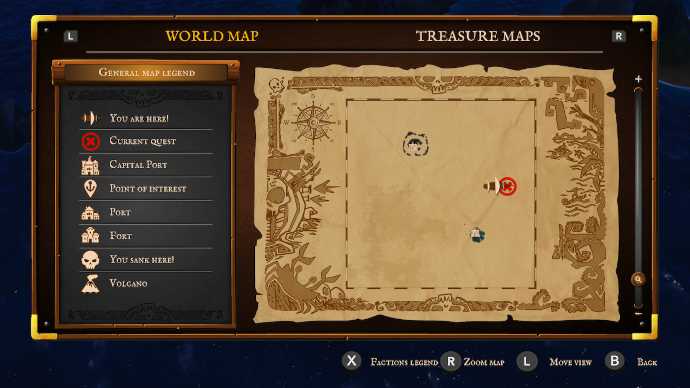
As for replayability, there's a good amount—assuming you like the overall gameplay of King of Seas (more on that below).
There are secret treasure maps you can discover, which will lead you to special areas with hidden riches. There are also special missions with appropriate special rewards. And there's even a hardcore mode with permadeath, if you want elevated thrills.
The Bad
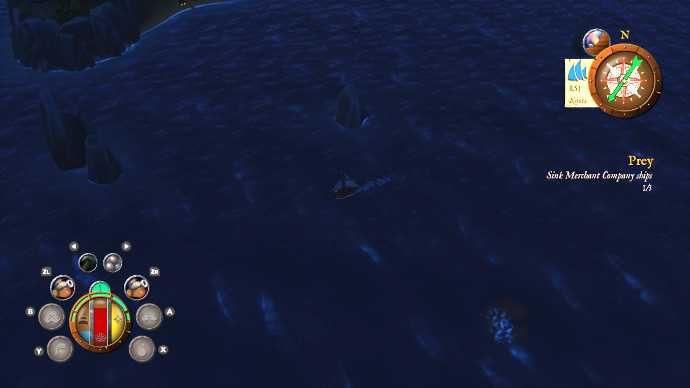
My biggest complaint about King of Seas is that it feels strangely uneventful—possibly even monotonous—despite its description as an "epic" and "filled with battles."
Maybe I'm not playing it correctly, but most of my time outside of dialogue is spent staring blankly as I wait for my ship to cross the great expanse of sea. It's almost meditative with how long it takes to get from place to place.
Even in combat, there are times I've found myself chasing after my quarry for several minutes, or running from an unbeatable ship for many minutes, with nothing actually happening because both ships are traveling at the same speed in a game of nautical chicken.
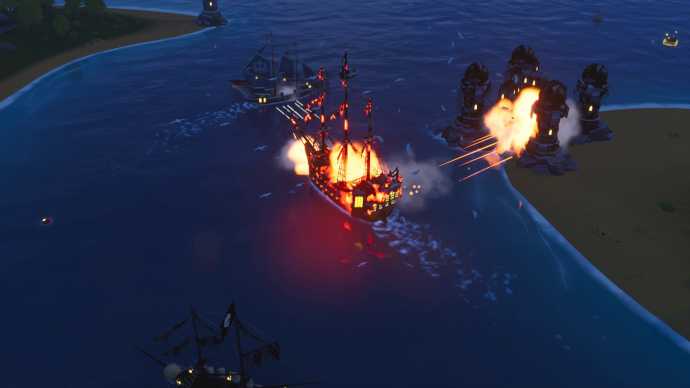
Which brings me to my next big complaint: the combat can be fun, but it doesn't seem to offer much room for skilled maneuvers.
Again, this could be down to my own lack of skill at these types of games, or maybe I'm missing a key understanding of the gameplay. Either way, my experience is that combat can get repetitive—there are only so many times I can circle a ship before it starts feeling tedious.
Along the same lines, the world of King of Seas can feel pretty small despite how long it takes to get from point A to point B. Perhaps the procedural generation isn't varied enough, or maybe there isn't enough variety in things to do.
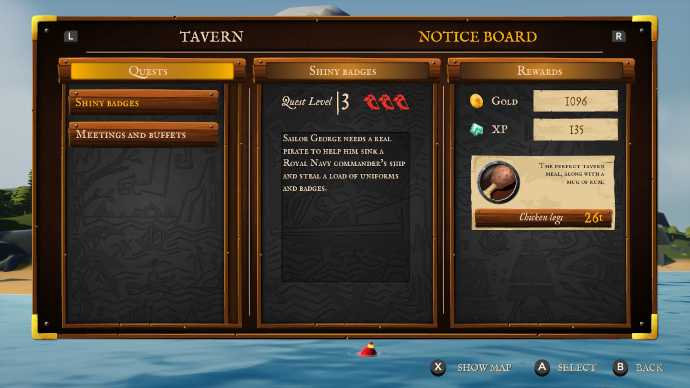
And my last major complaint is the user interface.
I can see where they were going with the UX design, but I ended up feeling overwhelmed by it. There are a lot of buttons to juggle—switching cannons, changing throttle speeds, remembering to use special abilities—and it's easy to get mixed up in combat.
The inventory management is also confusing because the controls and layout aren't the most intuitive. Between knowing what's equipped, what's in cargo, and navigating the different item pages, I found myself fighting the interface more often than not.
The Verdict
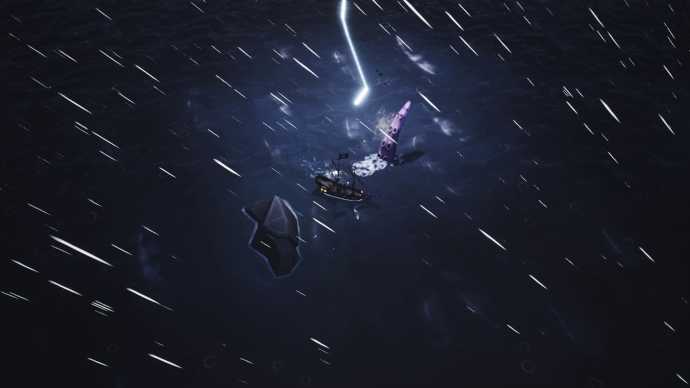
Overall, I'm learning that maybe pirate games and open-seas adventures aren't right for me, despite how much I want to like them.
I feel the same way toward King of Seas as I did after sinking several months into EVE Online: it sounds cool on paper, and like something I think I'd enjoy, but the experience is far from my expectations.
Not to say that King of Seas is bad. I can see it being a great game for those who do like this sort of thing—although it's a little thin for the price. On sale? It'd be a strong buy. For full retail? That really depends on how much you like the idea of being an open-world pirate!
